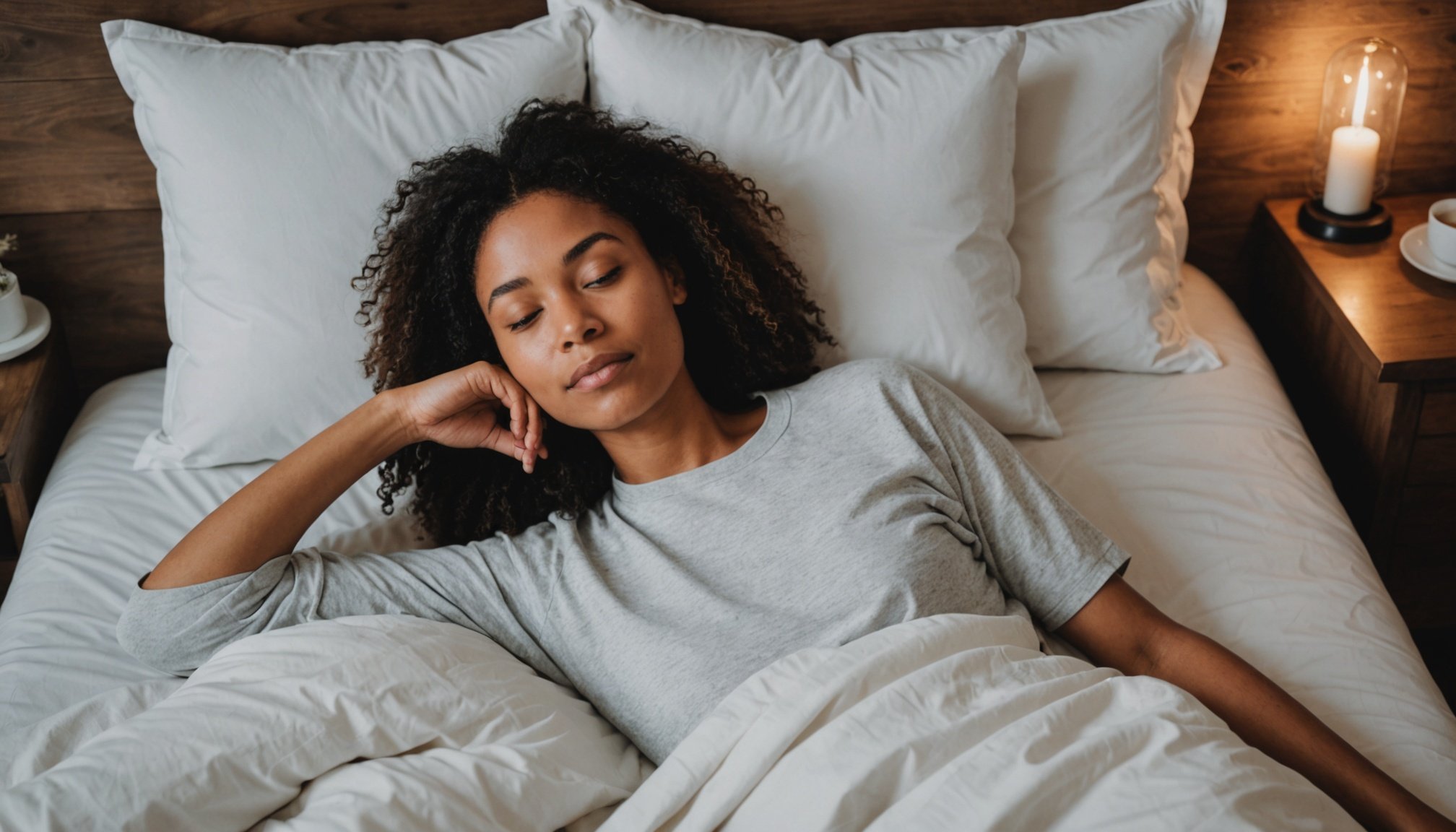Sleep is a crucial component of our overall health, yet often neglected in our busy lives. Establishing a calming bedtime routine is a significant step towards enhancing your sleep hygiene, fostering better quality rest, and promoting physical and mental well-being. As we approach the end of another year, it’s time to reassess and reinvigorate our night-time rituals. This guide aims to equip you with practical tips to help you unwind, improve your habits, and ultimately drift asleep more peacefully.
Understanding the Importance of a Consistent Bedtime Routine
Creating a consistent bedtime routine is more than just a series of actions; it’s a profound commitment to improving your body and mind. Regular bedtime practices help signal to your brain that it’s time to wind down, promoting a seamless transition from daily activities to restful sleep.
Also to see : What are the potential health benefits of yoga, and how can beginners get started safely?
While the exact routine may vary, the key lies in the consistency of the sequence. By aligning your schedule with your body’s natural circadian rhythms, you minimize stress and maximize restful time in bed. A regular routine can lead to a drastic improvement in sleep quality, enhancing your energy levels and mood throughout the day.
Consider incorporating activities that relax and soothe the mind—light reading, gentle stretches, or a warm bath can work wonders. However, it’s essential to avoid screens and bright light, which can interfere with the natural production of melatonin, the hormone responsible for sleep regulation.
Also to discover : How can you promote mental health awareness in your workplace and create a supportive environment?
Moreover, creating a serene sleeping environment can significantly bolster your efforts. Ensure that your bed and bedroom are comfortable, with the temperature set to a cool, optimal range. The more inviting your space is, the easier it will be for your mind to associate it with relaxation and rest.
By prioritizing a consistent and calming bedtime routine, you not only improve your sleep hygiene but also lay the groundwork for better mental and physical health.
Crafting a Personalized Night-Time Routine
Designing a night-time routine that caters to your unique needs is vital, as no two individuals have the same patterns or preferences. Start by assessing your current habits and identifying areas where improvements can be made.
Begin by establishing a bedtime that aligns with your lifestyle and allows for sufficient rest—whether you’re an early bird or a night owl. Once you’ve pinpointed your ideal sleep window, stick to it diligently, even on weekends, to maintain a consistent sleep schedule and improve sleep quality.
Integrating relaxation techniques can significantly enhance your routine. Consider practicing mindfulness or meditation to help ease any lingering stress from the day. These practices encourage a state of relaxation, clearing the mind of distractions and preparing it for restful sleep.
Another component worth considering is the reduction of stimulating activities before bed. Limiting caffeine and heavy meals in the evening can prevent disturbances in your body‘s natural settling process. Instead, opt for decaffeinated teas or light snacks that are easy on the digestive system.
Importantly, establish a “wind-down” period before bedtime. During this time, dim the lights, power off electronic devices, and engage in calming activities. This phase signals to your mind that it’s time to shift into rest mode, promoting a better transition into sleep.
The Role of Sleep Environment in Enhancing Sleep Hygiene
The environment in which you sleep plays a pivotal role in your overall sleep hygiene. Creating a dedicated space that is conducive to rest is essential for achieving deep, restorative sleep.
Begin by evaluating the current state of your bedroom. Is it cluttered or chaotic? An orderly, serene environment fosters relaxation, encouraging your mind to unwind from the day‘s activities. Consider simplifying your space by removing distractions and unnecessary items.
Pay attention to the bed itself. A comfortable mattress and supportive pillows can make all the difference in your sleep quality. If you frequently wake up with aches or struggle to fall asleep, it may be worth investing in a quality bed that supports your body‘s needs.
Temperature and lighting also influence sleep hygiene. Keeping your bedroom cool and dark can facilitate the natural production of melatonin, helping you fall asleep more easily. Blackout curtains or a comfortable sleep mask can be effective solutions to block out unwanted light.
Lastly, consider the impact of noise on your sleep. If you’re sensitive to sounds, white noise machines or earplugs can help create a peaceful auditory environment. By optimizing your sleep space, you set the stage for a more restful and rejuvenating night.
Tips for Maintaining Good Sleep Hygiene
Maintaining good sleep hygiene extends beyond a nightly routine; it’s a commitment to lifestyle choices that promote overall health. Incorporating various strategies into your day can enhance your sleep quality and contribute to a healthier, more balanced life.
Firstly, regulate your exposure to sunlight. Natural light helps synchronize your internal clock, encouraging alertness during the day and sleepiness at night. Aim to spend time outdoors daily, especially in the morning, to boost your body’s natural rhythms.
Exercise is another pillar of health that positively affects sleep. Regular physical activity promotes better sleep, but it’s crucial to time workouts appropriately. Exercising too close to bedtime can be stimulating, so aim for a morning or early afternoon sweat session.
Be mindful of your diet and drinking habits. Consuming large meals, caffeine, or alcohol close to your bedtime can hinder your ability to fall asleep comfortably. Instead, opt for light snacks if you’re hungry before bed and maintain hydration without overindulging late in the evening.
Lastly, be aware of your stress levels. Chronic stress can disrupt sleep patterns, leading to insomnia or poor quality rest. Incorporate stress management techniques, such as yoga, journaling, or even seeking professional help if needed, to maintain a balanced state of mind and support better sleep hygiene.
By incorporating these tips into your daily routine, you cultivate a lifestyle that supports not only better sleep but also overall well-being.
In conclusion, a well-structured bedtime routine is not just a nightly ritual; it’s a transformative commitment to improving your sleep hygiene and overall health. By understanding the importance of consistency, crafting a personalized night-time routine, optimizing your sleep environment, and maintaining healthy habits throughout the day, you can pave the way for better rest and rejuvenation.
As you embark on this journey, remember that change takes time. Be patient with yourselves as you adapt to new habits, and be open to adjusting your routine as needed. With dedication and mindfulness, you can transform your bedtime into a haven of peace and tranquility, leading to a more fulfilling, energetic life. Let this guide be your compass as you strive for good sleep and a healthier, happier tomorrow.











